Trek 1.1 review
The Trek 1.1 is Trek's bottom rung road bike, but that doesn't mean budget ride quality
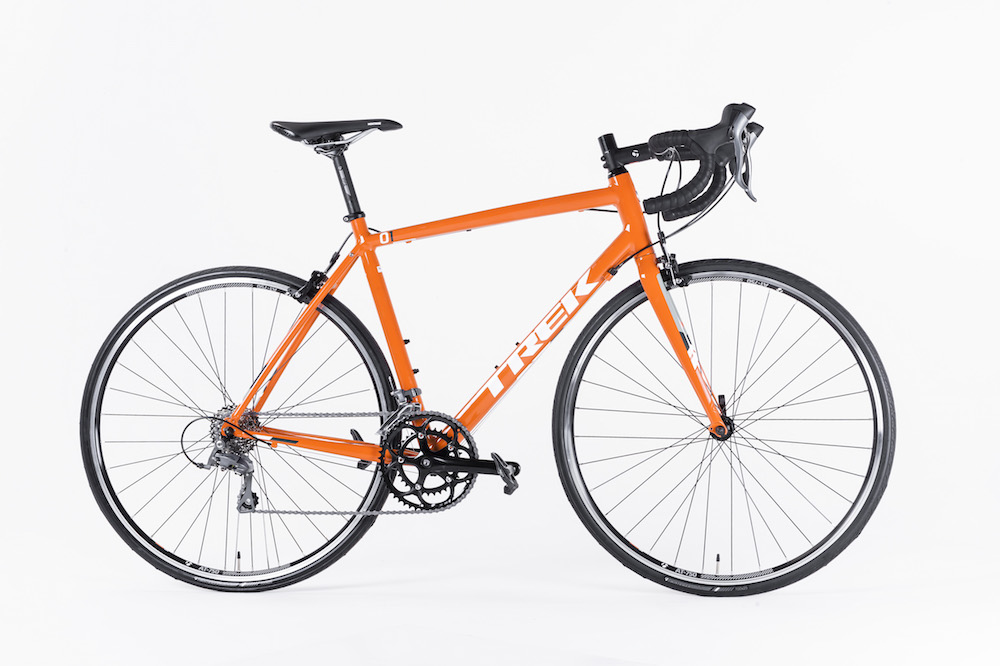
The Trek 1.1 has got plenty of great features to like. It's a comfortable alloy frame with a carbon fork and it's versatile thanks to the pannier mounts. If you can look past the weight and the iffy brakes this would be a great bike for new riders or those wanting to start commuting to the office.
-
+
Comfortable ride
-
+
Carbon fork
-
+
Tubeless ready wheels
-
+
Pannier rack/mudguard compatible
-
-
Heavy
-
-
Brakes could be better
- -
You can trust Cycling Weekly.
At £625, the Trek 1.1, alongside the Trek Lexa 2, occupies the lowest level of Trek’s bike roster. But, for its diminutive status, it delivers a tidy ride that’d definitely be befitting a beginner rider.
Buy now: Trek 1.1 at Evans Cycles for £625
Frame
Despite occupying the lower rungs of Trek’s hierarchy, the 1.1 is still given that distinctively Trek sloping top tube boasting Trek’s H2 fit system, a feature that the brand believes to be the optimum on bike position.
>>> Best cheap bikes under £1000: bikes from £260 ridden and rated
According to the company, it’s a feature that travels right to the top, with Trek-Segafredo riders also using the same fit system to get their race machines right.
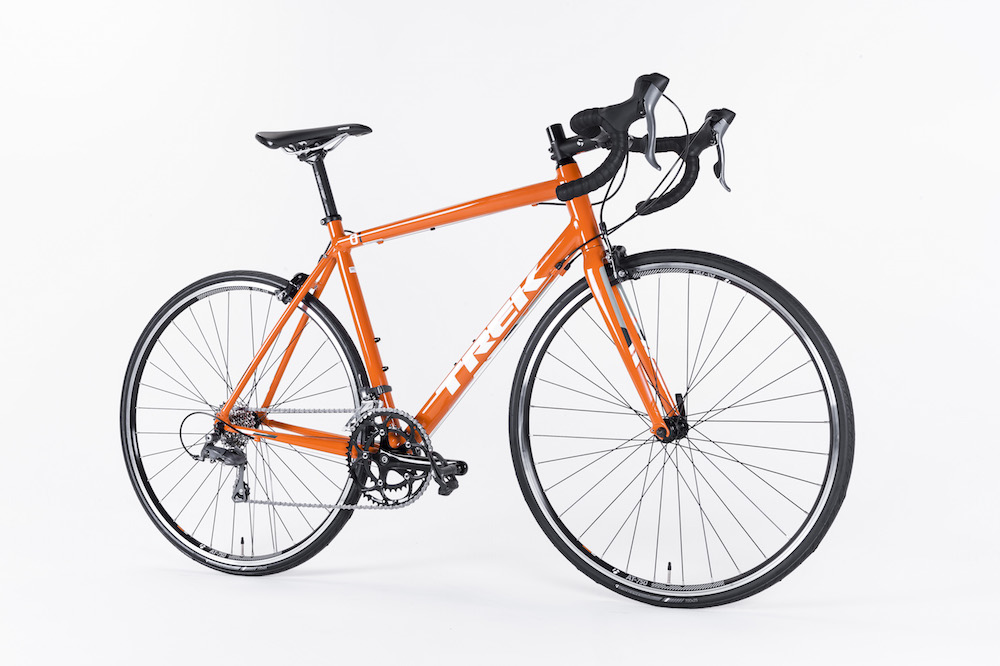
In real life, it’s certainly not uncomfortable, and the soft bend in the arms is comfortable enough for extended rides at least, and the size 56cm fit my 5,11 frame comfortably.
The frame itself is made from 100 series Alpha Aluminium, which happily brings a balance between comfort and weight. Meanwhile, the carbon fork helps eliminate road buzz and keep the weight down as much as possible.
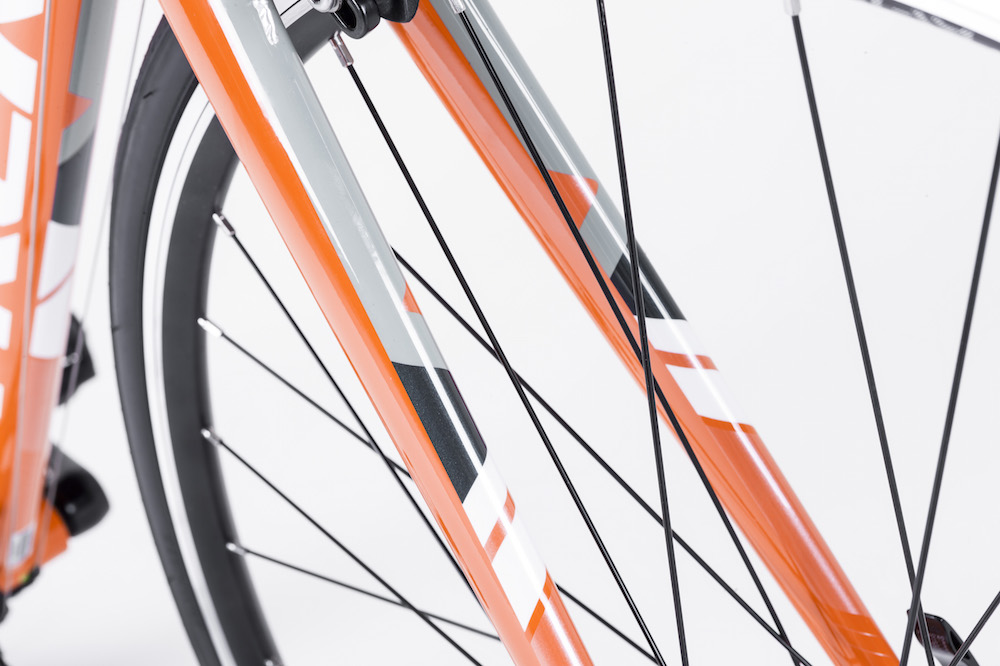
Other neat touches include the mounts for pannier racks as well as mudguard compatibility, which definitely helps make this a truly versatile machine, whether you want to go far or just commute to the office.
Specification
As an entry-level bike, you’re naturally looking at some entry level components, and the Trek 1.1 doesn’t come flashing the sportiest of gear, but happily, it all functions well.
The 1.1’s drivechain is a bit of a mish mash of parts. Shimano Claris takes care of shifting, with its Claris range making up the shifters as well as both front and rear derailleurs. The crankset and cassette meanwhile are outsourced to Vuelta Corsa and Sunrace respectively. No doubt to keep costs down.
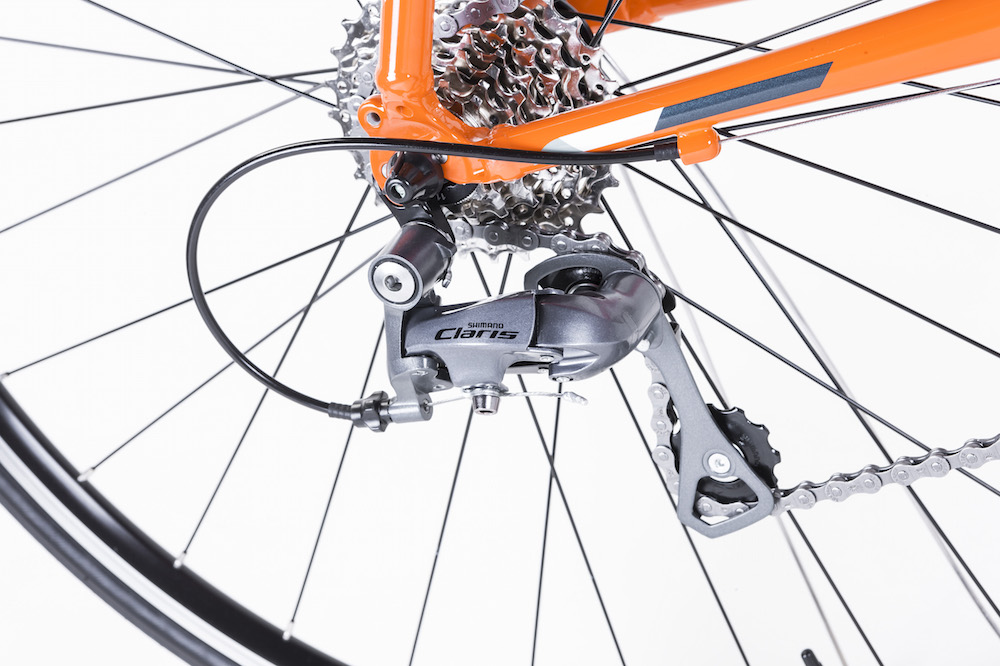
The Claris shifting performed well, as you’d expect from a low-end groupset from Shimano – a company that traditionally does budget very well.
>>> Shimano, SRAM and Campagnolo groupsets explained
However, the performance of the brakes was less inspiring. They will stop you eventually, but they’re not the most effective. Mix in a grabby, stiff action and they're not the most confident inspiring.
Elsewhere, the Bontrager AT-750 wheels felt bombproof, and they're tubeless ready. The 25mm rubber they’re shod with are also a welcome touch, adding comfort to the ride, although these aren't tubeless ready so you'll have to upgrade if you want to go down that route.
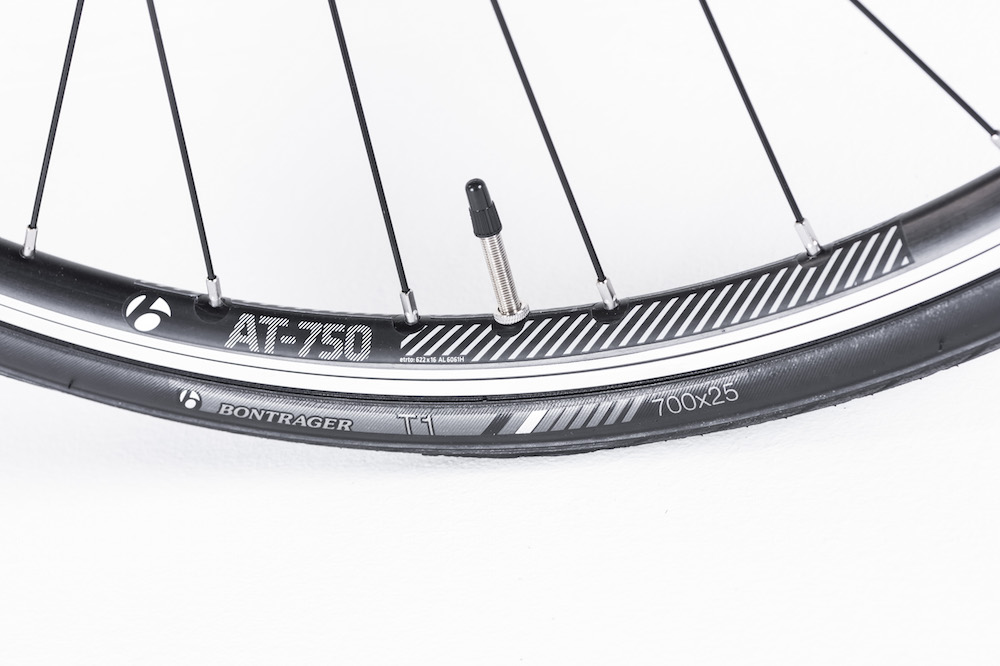
The rest of the finishing kit is made up of Bontrager’s in house parts, all of which did the job well. Up front the Bontrage Race handlebar brings some serious width to the front end, which won't be to everyones preferences, but new riders will enjoy the added comfort.
Ride
The ride quality of the Trek 1.1 is on point for its price. The aluminium frame irons out the bumps in the road, while the carbon fork evens out any jarring hand buzz, making for a very comfortable ride.
The upright position definitely helps here, and the wide bars help keep your arms in a comfortable position while holding your shoulders in a sustainable position. Its large looking frame is also dead stable at speed. it's comforting to ride, at no point feeling jittery or nervous.
Watch: Handlebar height and reach – how to get them right
Of course, such levels of stability can often mean a diminishment in mobility, and the Trek 1.1 is not an agile bike likely to make fast turns or whip around road furniture. At this level though, it’s a sacrifice I’m willing to make for the level of comfort on offer from the bike.
This size and stability does mean that the Trek 1.1 comes with a weight penalty, and at 9.33kg it is a bit of a beast to haul up and over those hills. Helpfully, the compact chainset (50/34 configuration) coupled with the 11-28, 8 speed cassette on the back makes getting up those inclines just that little bit easier.
>>> How to ride faster up short, steep hills (video)
Value
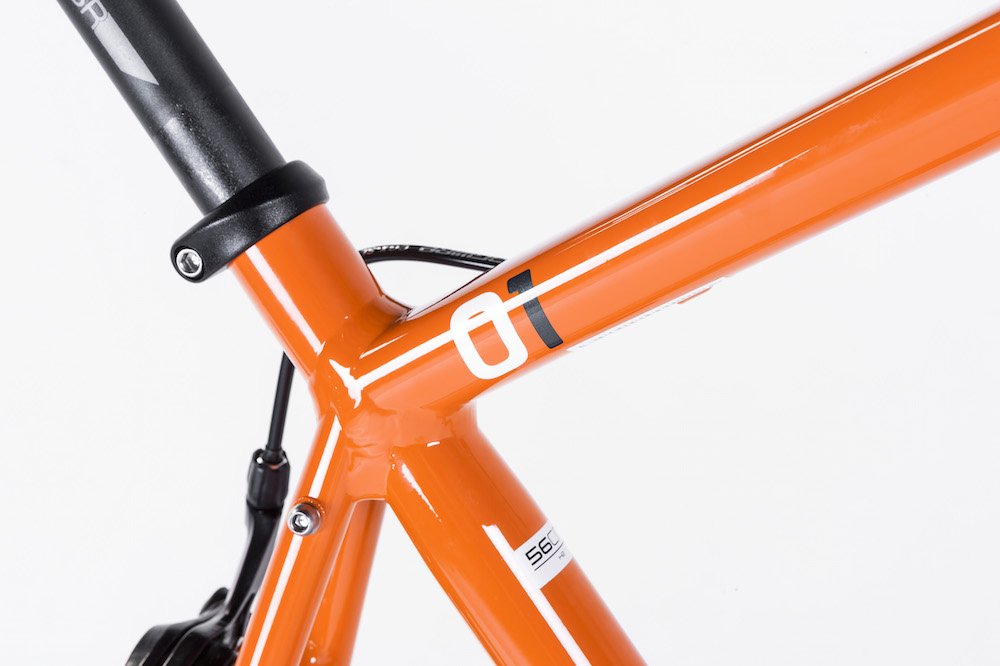
Matching the Trek 1.1 against other major cycling retailers reveals that it’s not too far off the money in terms of its spec.
Giant’s entry level machine, the Contend 2, costs £50 less but comes with the same, Shimano Claris drivechain, and configuration of own brand finishing kit. Although on the Trek you are getting a carbon fork.
Buy now: Trek 1.1 at Evans Cycles for £625
Both companies are put in the shade by B’Twin though, which offers its Triban 540 road bike for £650, equipped with a carbon fork and Shimano 105, a higher end groupset.

Thank you for reading 20 articles this month* Join now for unlimited access
Enjoy your first month for just £1 / $1 / €1
*Read 5 free articles per month without a subscription

Join now for unlimited access
Try first month for just £1 / $1 / €1
Get The Leadout Newsletter
The latest race content, interviews, features, reviews and expert buying guides, direct to your inbox!
-
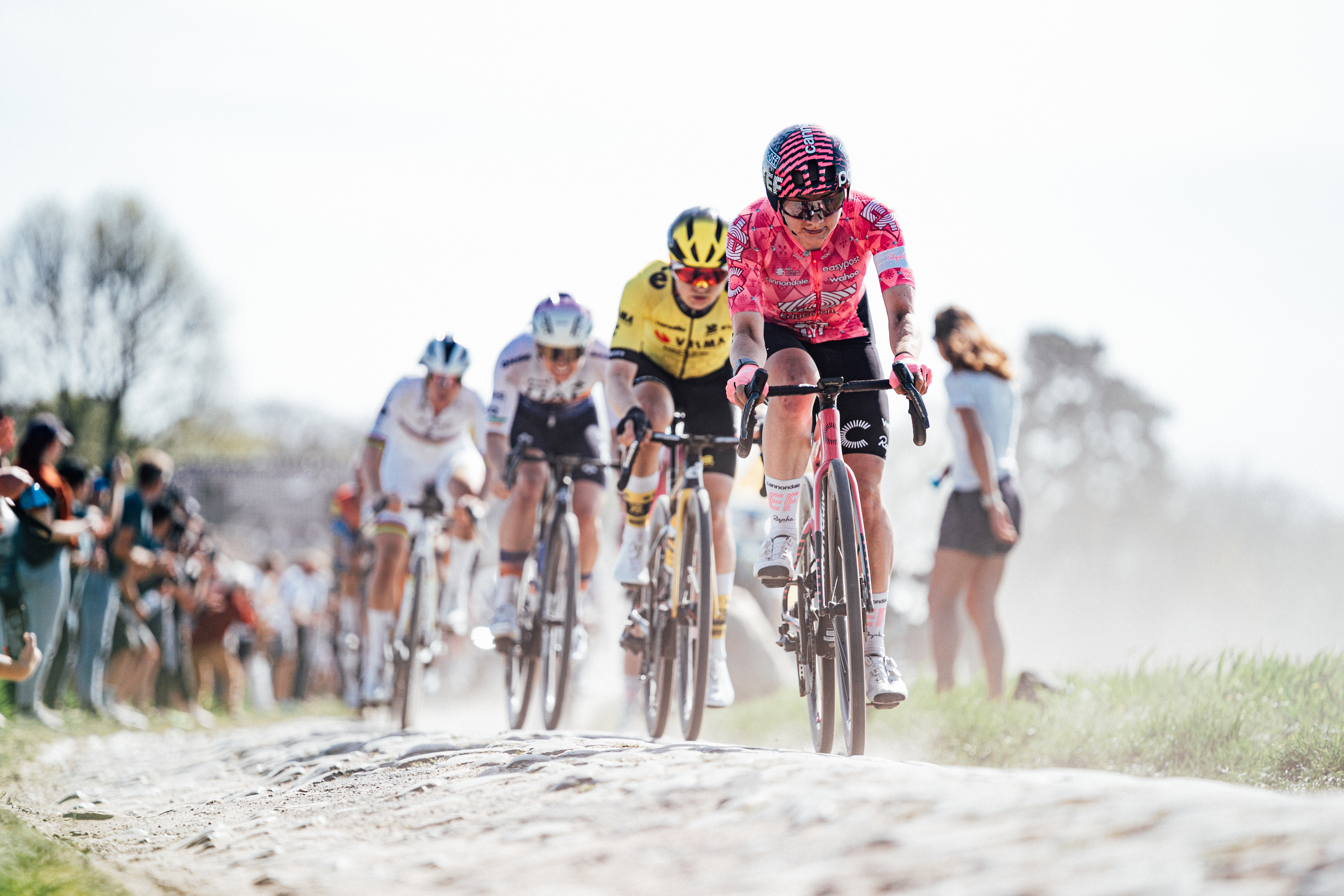 'This race is absolutely disgusting': Peloton reacts to another brutal Paris-Roubaix Femmes
'This race is absolutely disgusting': Peloton reacts to another brutal Paris-Roubaix FemmesNow in its fifth edition, Paris-Roubaix Femmes is still a tough race, even for the best bike riders in the world
By Adam Becket Published
-
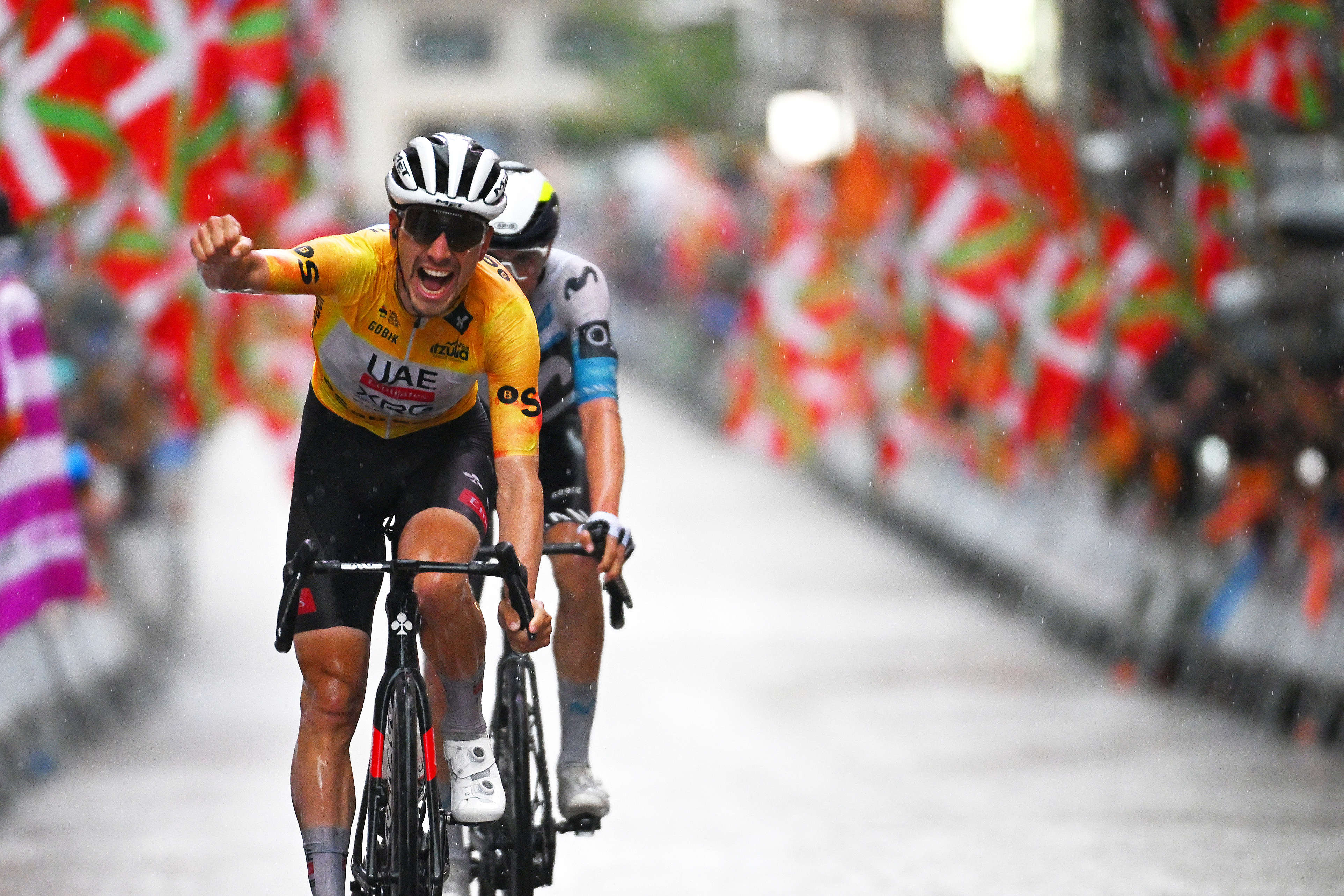 ‘It’s the biggest win of my career’ says João Almeida after crushing Itzulia Basque Country success
‘It’s the biggest win of my career’ says João Almeida after crushing Itzulia Basque Country successUAE rider wins the final stage to finish almost two minutes clear of Enric Mas on GC, with Max Schachmann in third
By Peter Cossins Published
-
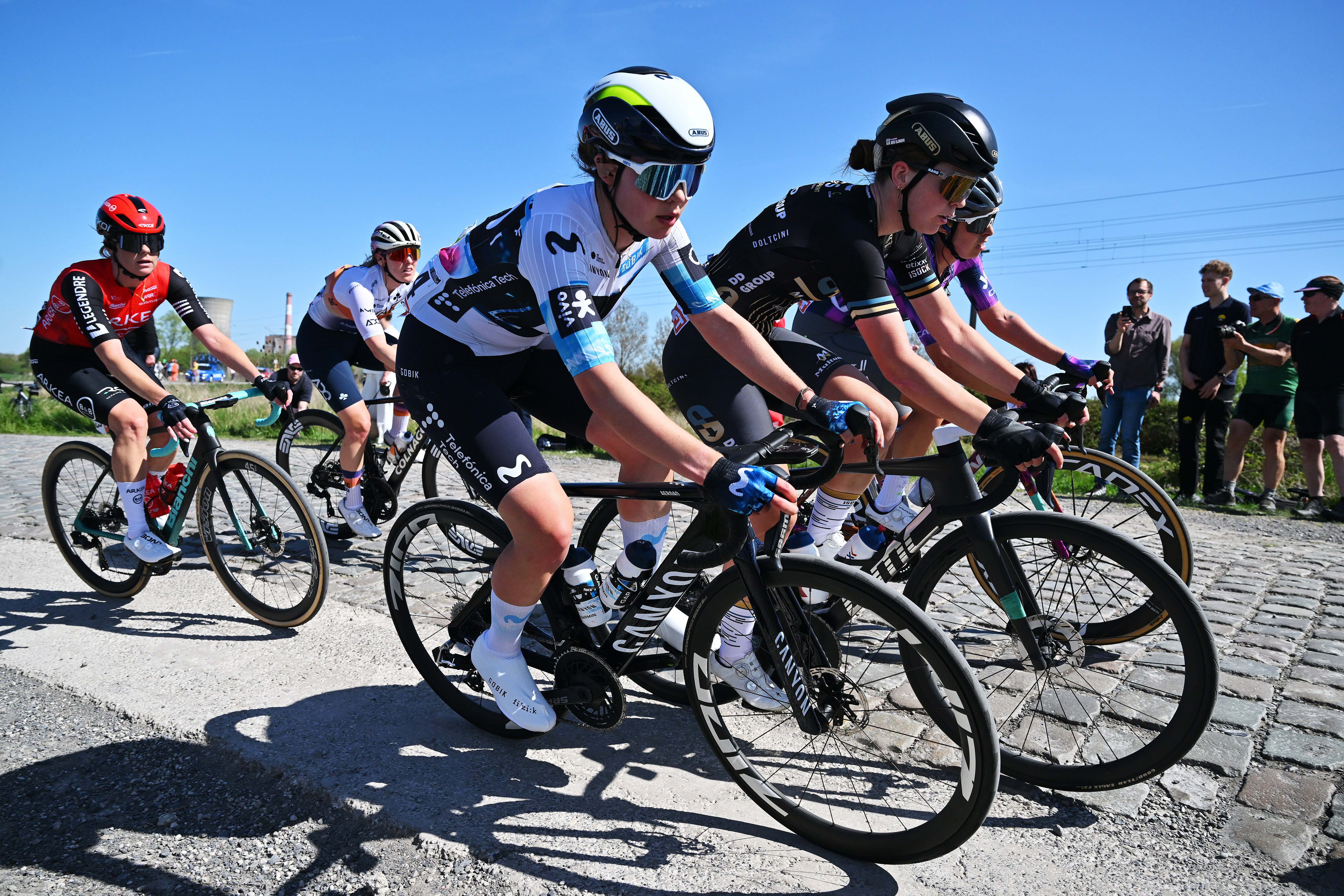 'I have an exam in a month and a half' - Carys Lloyd becomes Paris-Roubaix's youngest ever rider
'I have an exam in a month and a half' - Carys Lloyd becomes Paris-Roubaix's youngest ever riderBritish teenager and A-Level student makes it to the velodrome on debut
By Tom Davidson Published